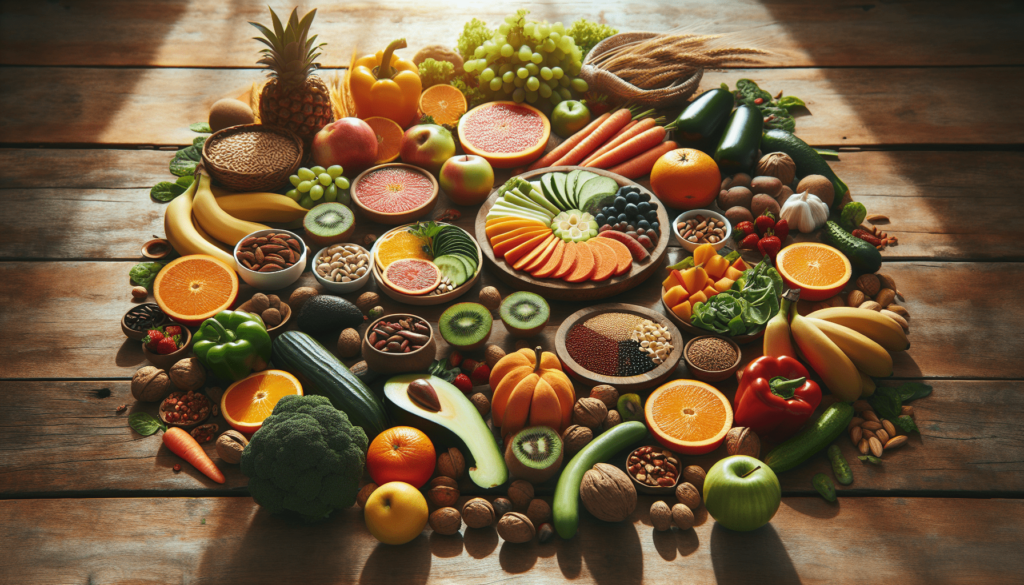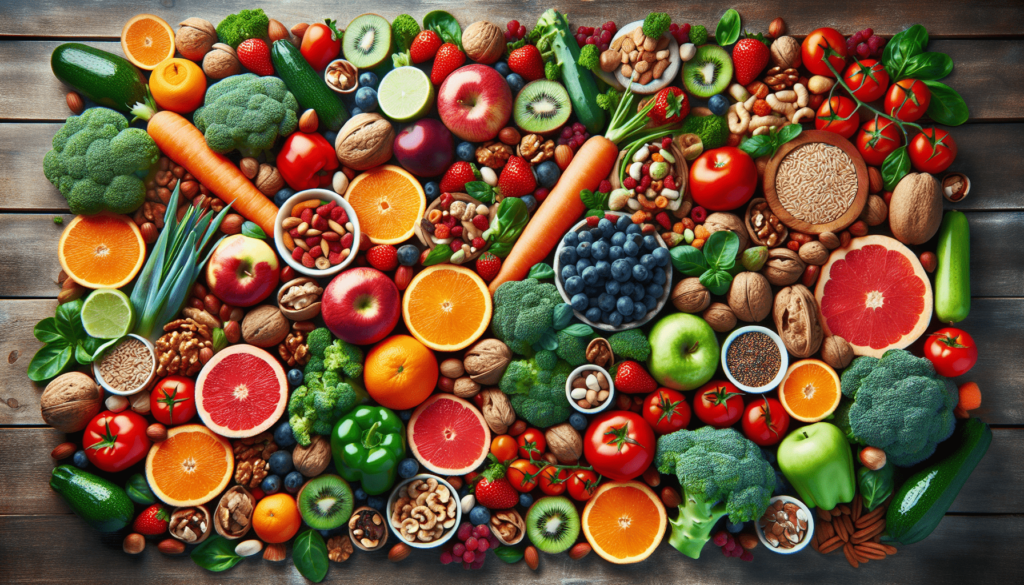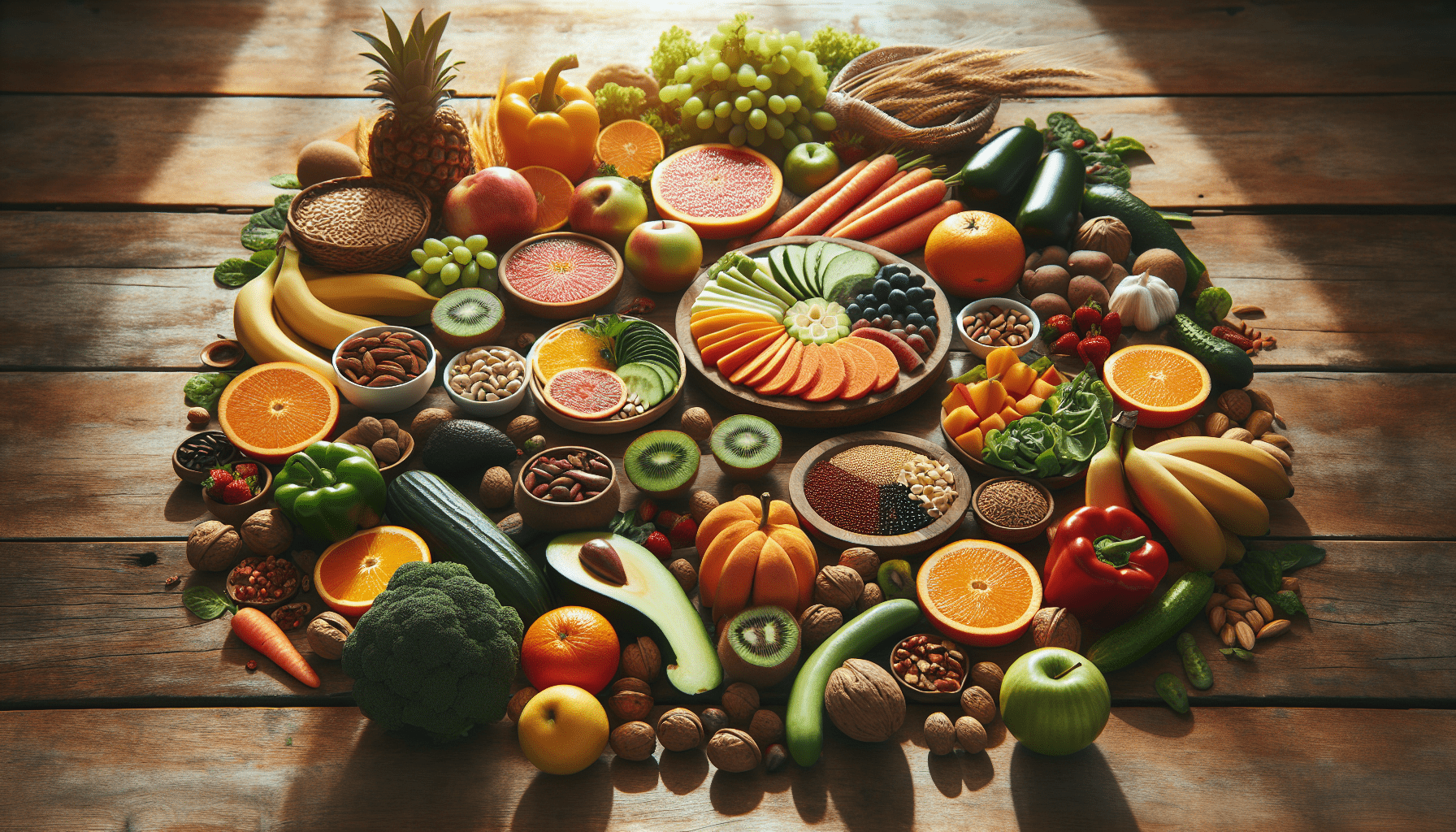What’s your brain got in common with your stomach? No, it’s not a fondness for junk food binges or an inexplicable longing for late-night ice cream. The answer is—drumroll, please—a balanced diet! Yes, indeed, a nutritious plate has more to do with your mental acrobatics than you might think. Pull up a chair, grab an apple or… a carrot stick, and let’s take a winding journey through the cornucopia of benefits that a balanced diet brings to your mental health.

Why Your Brain Loves a Balanced Diet
Did you know your brain is the biggest drama queen in your body? It sulks if you deprive it of nutrients or stuff it with junk. We’re talking full-on tantrum mode, with possible side effects including mood swings, anxiety, and a foggy mind that’s somehow less charming and more concerning than a foggy weather report.
The Brain’s Grocery List
Imagine if your brain had a grocery list. You’d find omega-3 fatty acids, B vitamins, antioxidants, and fiber on there, along with a sneaky request for chocolate that may or may not be medically justifiable. These components are crucial for brain function—not quite the brain food you expected, huh? Well, you won’t find any pop-tarts here.
How Nutrients Impact Your Mood
You’ve heard of comfort food, right? Well, this isn’t exactly that, unless your comfort food is quinoa and broccoli. The nutrients from whole, healthy foods help regulate your mood. It’s like the difference between a roller-coaster day and a leisurely Sunday brunch in the emotional department.
The Vitamin B Brain-Aid
Vitamin B: it’s not just for bees. This group of vitamins is essential for producing brain chemicals that influence your mood and mental function. Without enough B vitamins, you may feel snappier than a turtle that just got its lunch stolen. Foods such as leafy greens, beans, and poultry can make sure you’re not dishing out those snaps willy-nilly.
Omega-3s: The Fatty Extra Where It Counts
Omega-3 fatty acids are the Meryl Streep of fats—always nominated, never disappointing. They play an essential role in cell communication, which is like having a stellar Wi-Fi connection for your brain signals. Fish such as salmon and walnuts are excellent sources, proving that variety isn’t just the spice of life, but also of omega-rich foods.
Comfort Food vs Actual Comfort
It’s all fun and games until someone mentions comfort food, often characterized by its uncanny ability to show up in your pantry unannounced. While these foods provide temporary emotional relief (who doesn’t feel better with a cookie?), they can lead to a sugar crash, making you feel more like the wicked witch from the west than Dorothy off to Oz.
Sugar: The Mood Pirate
Sugar, though sweet, is akin to a pirate that loots your energy and mood. The initial rush might feel like winning the lottery, but the aftermath leaves you recalculating your life choices. A balanced diet helps maintain steady blood sugar levels, so you can focus on loftier things than hunting for the next Snickers bar.

Serotonin’s Happy Dance
You don’t have to be a biochemist to enjoy a serotonin surge. Often dubbed the “feel-good” hormone, serotonin plays a key role in mood regulation. About 90% of it is produced in your gastrointestinal tract, where diet is a key player.
Friendly Ferments
Fermented foods like yogurt and sauerkraut (a sentence you don’t hear every day) pack a probiotics punch. These friendly bacteria can boost your serotonin levels to make sure you’re more Zen garden and less hot mess. Next time you’re deciding between yogurt and a cupcake, maybe listen to the bevy of beneficial bacteria.
The Sleep-Diet Connection
Remember how you can’t seem to stop binge-watching that series and it’s somehow always 2 AM? Here’s where a nutrient-rich diet flexes its muscles. Serotonin helps make melatonin, another hormone essential for good sleep. It’s like an effective sleep team that’s as charismatic as Batman and Robin.
Magnesium: The Sleep Enabler
Magnesium is not just for dad jokes, with lines like “What did the person say to magnesium? ‘You’re Mg-nificent!’” Okay, it’s also for promoting good sleep. This mineral helps regulate neurotransmitters. Almonds, spinach, and avocados can provide enough of this mineral to sail you smoothly into dreamland.
Cognitive Function: A Nutritional Contribution
Ever had a day where you couldn’t find your keys even if they were glued to your hand? Cognitive function relies on your nutritional intake in ways you haven’t even imagined.
Antioxidants: The Brain’s Bodyguards
Antioxidant-rich foods are like personal bodyguards for your brain, protecting it from oxidative stress—nutrient gossip which means harmful free radicals are trying to steal your brain’s jewels. Think berries, nuts, and dark chocolate (which we’re sure needed no introduction).
Complex Carbs for Complex Thoughts
If Macbeth was written under the influence, we’d blame refined carbs. Unlike their complex counterparts—whole grains and legumes—refined carbs have the subtlety of The Hulk. Include whole grains in your diet to pave the way for more Subtle Shakespearean soliloquies in everyday thought.
A Nod to the Mediterranean Diet
If there was an Academy Award for diets, the Mediterranean diet would squabble with The Paleo and keto like an irate family feud. It’s hailed for heart benefits but isn’t too shabby when it comes to brain health. With its emphasis on fruits, vegetables, whole grains, nuts, and lean proteins, this diet is the gift that keeps on giving when it comes to cerebral wellness.
The Olive Oil Affair
Olive oil, you glossy, divine nectar of life, is central to the Mediterranean diet. Rich in healthy monounsaturated fats and antioxidants, it helps crank up the conductor who orchestrates mood—your very own Maestro of Mirth.
Breaking Myths: Mental Health and Diet
What if we told you that yes, chocolate can help with stress but no, guzzling down a candy bar doesn’t count as mindful eating? Several myths surround the connection between diet and mental health.
Myth: A Diet Alone Cures Mental Health Concerns
Let’s burst this bubble with a pin labeled ‘Reality’. While a balanced diet supports mental health, it is not a standalone treatment. Your therapy appointments are still safe! Nutrition should be part of a comprehensive approach that includes psychological strategies and exercise.
Myth: All Fat Is Bad Fat
Fat gets more bad press than a squirrel caught on camera stealing candy. Let’s get our story straight: It’s trans fats and saturated fats you should avoid, not all fats. Your body actually needs healthy fats for hormone production and brain function. Avocados didn’t fight and win the superfood revolution for nothing.
Small Steps to a Nutritionally Blessed Mental State
It’s not about turning your pantry into an organic farm overnight. Start with small, achievable changes in your diet, and brace yourself for the gradual showers of goodness.
The Shopping List Revamp
Let’s swap that triple chocolate cake mix for some nuts, berries, and whole grains. Fresh fruits and vegetables make wardrobe changes more often than Lady Gaga, but keeping them evergreen in your shopping cart is a win-win.
The Portion Game: Play It Smart
If you want to have your cake and eat it too, practice portion control. Even nutritious foods can lose their charm if you devour them like they’re going out of style. Balance your plate like it’s an unfinished painting—striking yet tranquil, pleasing, yet satisfying.
The Tasty Journey Ahead
Deciding to support your mental health with a balanced diet is like committing to a road trip where the destination is a happier, more balanced you—except without the flat tires and gas station snacks. So, buckle up, wouldn’t want to spill those blueberries!
Vegan, Vegetarian, or Flexitarian?
Whether you’re vegan, vegetarian, or riding in on the flexitarian spectrum, there’s a balanced diet path for everyone. It encourages diverse food groups in moderation—without demanding you pledge allegiance to the broccoli kingdom. So cheers to a myriad of textures and tastes, all working in symphony to keep your noggin nodding in satisfaction.
In conclusion, let’s tip our hats to those mysterious and marvelous nutrients that keep your brain snappy, your mood peppy, and your mind as clear as a calm sea. With careful consideration of what you spoon, fork, or chopstick into your body, you’re setting up your mental mainsail for a meaningful, calm, and mentally fantastic journey. You’re not just feeding your stomach, you’re feeding your thoughts, emotions, and spirit—essentially, your inner superhero.
